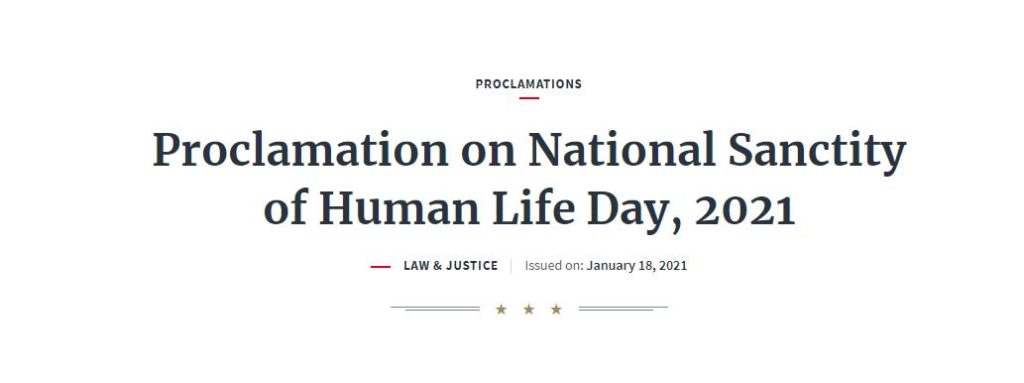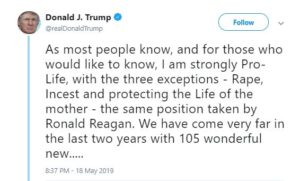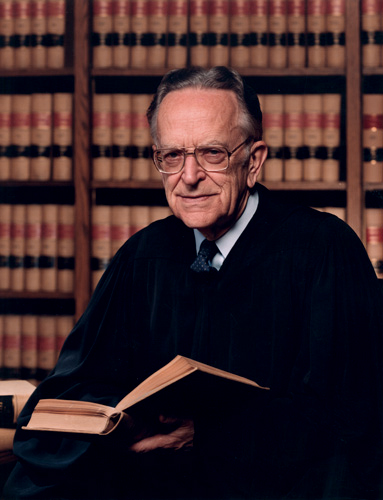Trump Issues Proclamation Recognizing Jan. 22 as ‘National Sanctity of Human Life Day’
 WASHINGTON — President Trump issued a proclamation on Monday recognizing Jan. 22, 2021 — the day marking the 48th year since Roe v. Wade — as “National Sanctity of Human Life Day” and characterizing Roe as a “constitutionally flawed ruling” that has “resulted in the loss of more than 50 million innocent lives.”
WASHINGTON — President Trump issued a proclamation on Monday recognizing Jan. 22, 2021 — the day marking the 48th year since Roe v. Wade — as “National Sanctity of Human Life Day” and characterizing Roe as a “constitutionally flawed ruling” that has “resulted in the loss of more than 50 million innocent lives.”
“Every human life is a gift to the world. Whether born or unborn, young or old, healthy or sick, every person is made in the holy image of God,” the proclamation reads. “The Almighty Creator gives unique talents, beautiful dreams, and a great purpose to every person.”
“On National Sanctity of Human Life Day, we celebrate the wonder of human existence and renew our resolve to build a culture of life where every person of every age is protected, valued, and cherished,” it states.
The proclamation notes that almost 50 years have passed since Roe v. Wade was decided and applauds Americans who are going against the grain to fight for the right to life.
“[S]trong mothers, courageous students, and incredible community members and people of faith are leading a powerful movement to awaken America’s conscience and restore the belief that every life is worthy of respect, protection, and care,” Trump stated. “Because of the devotion of countless pro-life pioneers, the call for every person to recognize the sanctity of life is resounding more loudly in America than ever before.”
The president then outlined his various pro-life actions throughout his tenure, such as reinstituting Ronald Reagan’s Mexico City Policy, as well as his Title X rule on federal funding for family planning organizations, and moving to protect the conscience rights of doctors and nurses who decline to assist with abortions.
“My administration has protected the vital role of faith-based adoption. At the United Nations, I made clear that global bureaucrats have no business attacking the sovereignty of nations that protect innocent life,” Trump enumerated. “Just a few months ago, our nation also joined 32 other countries in signing the Geneva Consensus Declaration, which bolsters global efforts to provide better healthcare to women, protect all human life, and strengthen families.”
“I also increased the child tax credit, so that mothers are financially supported as they take on the noble task of raising strong and healthy children,” he continued. “And, recently, I signed an executive order on protecting vulnerable newborn and infant children, which defends the truth that every newborn baby has the same rights as all other individuals to receive life-saving care.”
Out of the belief that America is to be an example for the rest of the world, the president expressed concern that America is among a “small handful of nations” that allow abortion past 20 weeks (five months). He called upon Congress to pass a law prohibiting abortion past that stage of gestation.
“Today, I call on the Congress to join me in protecting and defending the dignity of every human life, including those not yet born. I call on the American people to continue to care for women in unexpected pregnancies and to support adoption and foster care in a more meaningful way, so every child can have a loving home,” Trump urged.
“And finally, I ask every citizen of this great nation to listen to the sound of silence caused by a generation lost to us, and then to raise their voices for all affected by abortion, both seen and unseen.”
In the proclamation, Trump also remarked that restoring respect for life is key to solving many of the nation’s problems.
“When each person is treated as a beloved child of God, individuals can reach their full potential, communities will flourish, and America will be a place of even greater hope and freedom,” he declared.
Read the proclamation in full here.
As previously reported, Trump has stated publicly that he identifies as pro-life — but with exceptions. He became the first president in American history to speak at the annual March for Life, stating, “Unborn children have never had a stronger defender in the White House.”

“As most people know, and for those who would like to know, I am strongly pro-life, with the three exceptions — rape, incest and protecting the life of the mother — the same position taken by Ronald Reagan,” Trump tweeted in May 2019.
In 2016, while still a presidential candidate, Trump wrote in an op-ed published by the Washington Examiner, “Let me be clear — I am pro-life. I support that position with exceptions allowed for rape, incest or the life of the mother being at risk.”
He also told NBC’s “Today” show that same year that he would like to see the exceptions in the Republican platform as there currently are none.
“The Republican platform, every four years, has a provision that states that the right of the unborn child shall not be infringed. And it makes no exceptions for rape, for incest, for the life of the mother. Would you want to change the Republican platform to include the exceptions that you have?” asked co-host Savannah Guthrie.
“Yes, I would,” Trump replied. “Yes, I would. Absolutely. For the three exceptions, I would.”
Trump’s statements allowing for exceptions are similar to those made by other recent Republican presidents, including George H.W. Bush and George W. Bush.

As previously reported, out of the seven Supreme Court justices that ruled in favor of Roe in 1973, five were Republican-appointed. The court discussed the reasons why abortion has historically been outlawed in the nation, including the binding vow of the Hippocratic Oath and the influence of Christian ethics. It also noted that in pagan nations such as Greece and Rome, “[a]ncient religion did not bar abortion.”
Judge Harry Blackmun, nominated by Richard Nixon, wrote the majority opinion. Blackmun stated that the Constitution does not include the unborn as being persons, and therefore, they may not receive equal protection.
“The Constitution does not define ‘person’ in so many words,” he wrote. “[I]n nearly all these instances [where it is cited], the use of the word is such that it has application only post-natally. None indicates, with any assurance, that it has any possible pre-natal application.”
“All this, together with our observation, supra, that, throughout the major portion of the 19th century, prevailing legal abortion practices were far freer than they are today, persuades us that the word ‘person,’ as used in the Fourteenth Amendment, does not include the unborn,” he continued. “In short, the unborn have never been recognized in the law as persons in the whole sense.”
The court’s comments about the “viability” of the child — when the infant could live apart from his or her mother outside of the womb — also influenced future rulings that have allowed abortion to continue.
“Physicians and their scientific colleagues have regarded [the concept of ‘quickening’] with less interest and have tended to focus either upon conception, upon live birth, or upon the interim point at which the fetus becomes ‘viable,’ … albeit with artificial aid,” Blackmun wrote. “Viability is usually placed at about seven months (28 weeks) but may occur earlier, even at 24 weeks.”
However, some believe that the Supreme Court’s logic was faulty and contend that gestational age does not make the child less human or unworthy of life. The film “Come What May,” produced by Patrick Henry College students, centers on this argument.
“They tear the baby out of its only means of life support, and say, ‘Wow, look at that; our machines can’t sustain it’s life,’ and somehow, that proves it’s not viable?” Caleb Hogan, played by Austin Kearney, declares in the production.
Ecclesiastes 11:5 states, “As thou knowest not what is the way of the spirit, nor how the bones do grow in the womb of her that is with child, even so thou knowest not the works of God who maketh all.”
Become a Christian News Network Supporter…







Comments are closed.